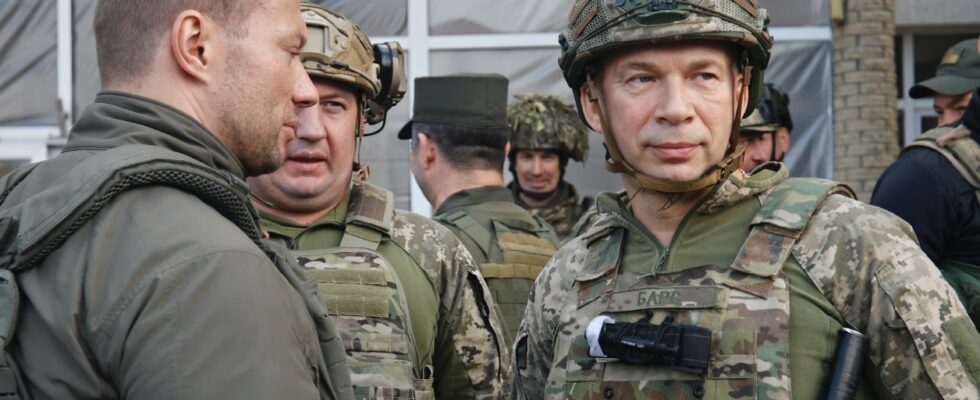Russia announced Thursday that it would send additional forces to the Belgorod region bordering Ukraine, on the ninth day of an unprecedented Ukrainian offensive in the neighboring Kursk region.
Key information to remember
⇒ Ukraine has taken complete control of the Russian city of Sudja
⇒ kyiv set up a military administration in Kursk
⇒ Ukraine claims to control 82 localities
Ukraine has taken complete control of the Russian city of Sudja, Zelensky says
Ukrainian President Volodymyr Zelensky said Thursday that his forces had taken complete control of the Russian city of Sudja in the Kursk region, the scene of a surprise offensive by kyiv’s forces for more than a week.
Ukrainian Army Commander Oleksandr Syrsky reported the completion of the liberation of the city of Sudzha from the hands of the Russian military, Volodymyr Zelensky said on Telegram. This town with 5,500 inhabitants is the main conquest of the Ukrainian forces as part of their offensive in the Kursk region.
Ukraine has established a military administration in the Russian region of Kursk
Ukraine has established a military administration in Russia’s Kursk region, its commander Oleksandr Syrsky announced on Thursday.
A sign of the Ukrainian forces’ intention to establish themselves over the long term, this military structure is responsible for the day-to-day affairs and logistics of the army, but is also responsible for ensuring security in a given area.
Additional forces in the Belgorod region
Russia announced on Thursday that it would send additional forces to the Belgorod region, which borders Ukraine. At a meeting devoted to the security of border regions, Defense Minister Andrei Belousov reported on “the allocation of additional forces and means” to the Belgorod region.
“The meeting (…) allowed to discuss additional measures aimed at ensuring the integrity and inviolability of the territory, as well as the protection of the population and infrastructure in the Belgorod region against attacks by military formations” of the Ukrainian army, the ministry said on Telegram.
Russian army says it has retaken village in Kursk region from Ukrainians
The Russian military said Thursday it had retaken the village of Krupets in the Kursk border region. It is the first time since August 6 that the Russian military has said it has retaken one of the villages that came under Ukrainian control in the region.
The Russian army has “regained control of the village of Krupets,” the Russian Defense Ministry said on Telegram, affirming that it “continues to repel” the Ukrainian assaults.
UN asks Moscow for access to conflict-affected Russian regions
The UN Human Rights Office on Wednesday asked Russia to grant it access to conflict-affected regions of Russia, including Kursk. “The UN Human Rights Office has sent a request to the Russian authorities to facilitate the Office’s access to areas of the Russian Federation affected by hostilities, including the Belgorod, Bryansk and Kursk regions, as part of our human rights monitoring and assessment mandate,” spokesperson Liz Throssell told AFP by email.
Nord Stream sabotage validated at the highest Ukrainian level
The sabotage of the Russian Nord Stream gas pipeline in 2022 in the Baltic Sea has been validated at the highest level in kyiv, the Wall Street Journal, including initially by Ukrainian President Volodymyr Zelensky.
According to the American newspaper, which relies in particular on Ukrainian military sources, the bombing in the depths of the Baltic Sea was carried out under the supervision of the then commander-in-chief of the Ukrainian army, Valery Zaluzhny, despite a change of heart by Volodymyr Zelensky, who had called for the project to be stopped.
